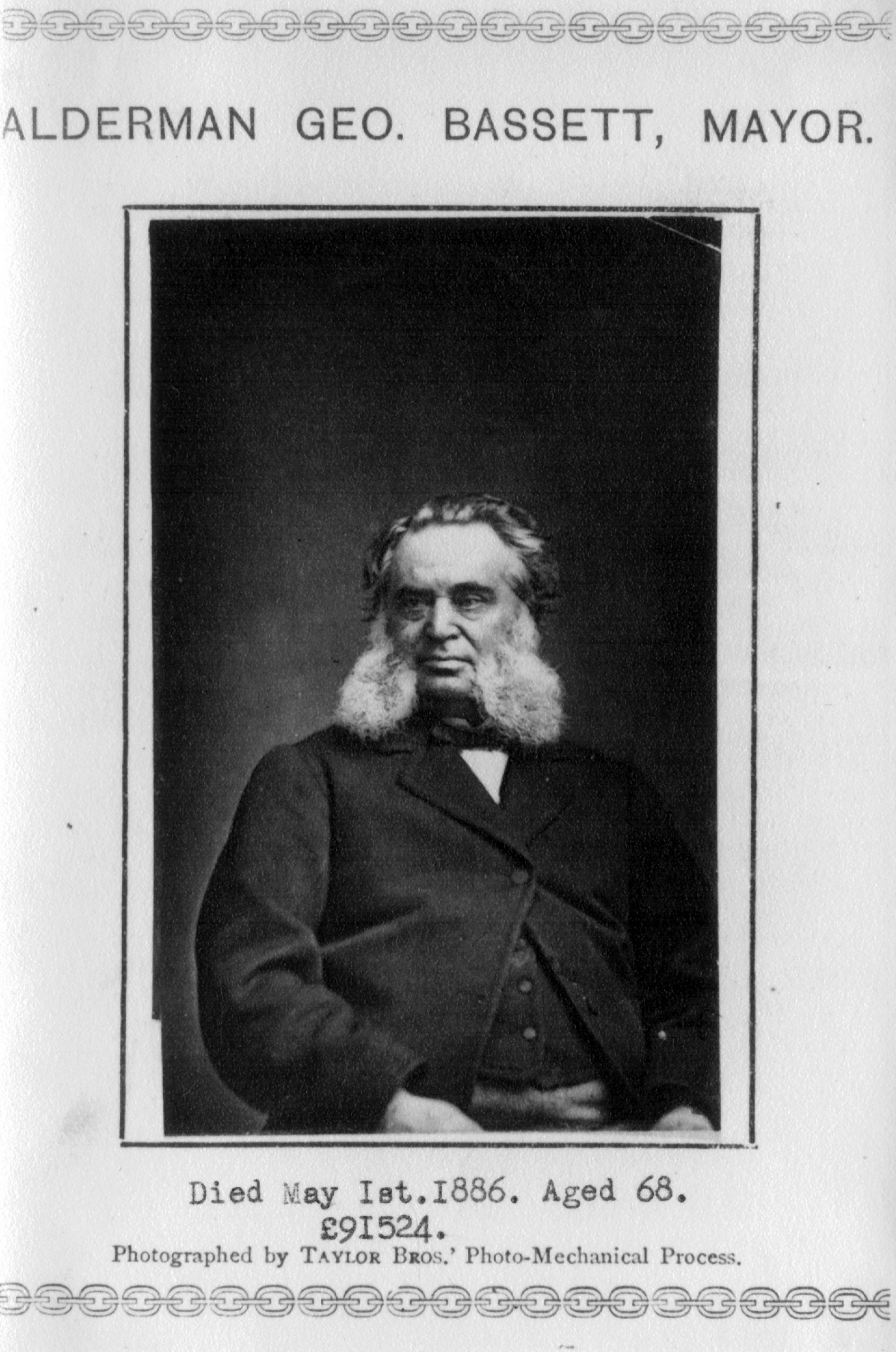
Alderman George Bassett. Source: Picture Sheffield.
George Bassett was born in Ashover in Derbyshire and served a seven-year apprenticeship as a confectioner with Willilam Haslam of Chesterfield, moving to Sheffield in 1839 and finding work as a confectionery assistant on the High Street. By 1841 Bassett was setting up his own business, both making his own products and dealing in some of the leading products of the day.
Throughout the 1850s his business expanded, new premises were opened, and a greater range of goods sold. Bassett was an innovator and entrepreneur, one of the first in Sheffield to introduce mass production when he opened premises that he described as a ‘manufactory’ on Snig Hill.
George Bassett was brought up as a member of the Wesleyan Methodist Church and was a preacher, leader and staunch supporter of the Church all his life. He was committed to building new chapels for the growing population of Sheffield believing that the provision of chapels was his duty, both to serve God and the community. He was a generous benefactor, giving meals, entertainments and trips out to his workforce, soup to the poor, and donations in his will to hospitals, orphanages, churches, homes for poor children and Foreign Missions.
Bassett first became a member of Sheffield Council in 1851 and was unanimously elected as Town Mayor in 1876. Two years later he suffered a stroke, which was followed by further attacks. In 1883 he relinquished all his business interests. George Bassett died on 1 May 1886 and was buried in grave KK 146 in the Nonconformist area. His grave is one of the most visited in the Cemetery and many of those visitors associate him with Liquorice Allsorts and Jelly Babies, favourite sweets made under his name today. However, Bassett would not recognise these confectionery lines as they were not developed until after his death.
You can read more about people who worked as confectioners and who are buried in the Cemetery in the Sheffield General Cemetery Trust’s publication Sweet Remembrance and follow the self-guided trail Sweet Remembrance.



